
I haven’t done any reading for the last three days, not even audiobooks. The reason is that I was finally able to move my Calibre library, which is where I store all my ebooks, off of remote storage (where I had to access it by wi-fi) to my actual computer (where I can access it directly). This took some technological re-jigging for which I am forever and eternally grateful to my husband.
Working with Calibre when it was on the network server was slooooow. Adding, or deleting, or editing the metadata of a book was a five minute+ process, and if I had several books to upload (or whatever), it took eons. And the bigger the library got the slower the whole process became. The result was that I did very little with it, and as any data analyst will tell you, data that isn’t tended gets messy.
You might ask how I let this happen in the first place. And that’s what I’m here to discuss (as well as two further subjects that I’ll get to later.) In order to explain my Calibre problem (outside of just having an older computer), I have to go way back to my previous review policies.
Several years ago, when I started this blog, my review policies were genre specific about what I was willing to read. I quickly found that authors—desperate for reviews, rushed, overwhelmed, etc—almost never read the review policies of bloggers they query. I could (and did) say I don’t read short stories, Christian fiction or Young Adult titles and would get a slew of requests that said, “Would you be interested in reading/reviewing my Young Adult Christian short story?” Every time. I swear.
At the time, I responded to every email I got and I spent and inordinate amount of time responding to authors whose books didn’t meet even my most basic qualifications. Authors I shouldn’t have had requests from and shouldn’t be requiring my time to respond to. Eventually it started to irritate me. If an author is willing to ask me to read their 300 page book and write a 250-500+ word review of it, the least they can do is read and comply with my one page policies and procedures. Right? Apparently not.

And to be clear, we’re not talking a request a week or anything. We’re talking 10 a day, sometimes more. You put your email out there as willing to provide free reviews and open to self-published and Indie authors and you will get flooded with requests. Period.
Each and every one seemed to think they were special. “She doesn’t generally like Young Adult Christian short stories, but maybe she’ll like mine. Better send it to her just in case” seemed to be the thought process. (Or less flatteringly, the world, represented by this blogger, owes me. I sensed this in a lot of emails.) Authors, don’t do this. I won’t miraculously like your book outside my preferred genre. I won’t even read it. And I don’t owe you anything.
So, eventually I changed my policies. I gave up on trying to get authors to be courteous. I did this resentfully, I admit, but I did it. I decided that ebooks are free to send, so I’d just open the flood gates. I basically said, “Send me anything you want. I make no promises to read it. But I’ll pick a couple books a month from the pile to review.”
Even then, when I couldn’t make it any more mindless, authors didn’t read the policies. I know because I kept getting emails offering me books, with instructions to respond for my copy, when I specifically said, “just send it.” Plus, I pettily made the email in the first paragraph 2lazy2readP&P@sadieforsythe.com. The real email was farther down the page. I got tons of emails at the too lazy address.
And here’s how this relates to now. My process for dealing with these books was that I started an email folder that I put all the requests in and then once every couple weeks, I went through and added all the mobi/PDF files to Calibre and created an A2R (available to read) shelf on Goodreads.

This worked great in the beginning. Calibre was slow, but it was manageable. As time went on however, it got unwieldy and I started to feel overwhelmed. I didn’t even realize it at the time. I got on with getting on. But eventually I discovered that I’d been dumping all these books in Calibre and meticulously logging them on Goodreads, but I hadn’t gone and actually read one in a while.
At that point I closed myself to requests. I posted a notice saying that I was accepting no new titles and was going to concentrate on reading the ones I already had. (You know I still got requests regularly though, right? Mostly from what I think are publicists who had me on lists and sent me every book they represented. Never bothering to come back to the blog and check if I was still open. Bloggers are resources, not people, apparently. Yes, I’m bitter.)
I was better about reading the requested books for a while. But eventually scrolling through hundreds of books, most of which didn’t interest me (and some of which had some serious quality issues), soured and I drifted away. All those books still sat in Calibre and I still maintained my Goodreads shelf, but it was just detritus. This was all a slow, but real process.
This brings me to the present and my newly functional Calibre file. I just spent three days, three damn near full days reading the blurb of every single book in my review request pile (and often several reviews) and deciding what I might actually be willing to read and deleting the rest. I deleted something in the vicinity of 400 ebooks. I kept about 120, which is still too many.

You have to understand how hard it is for me to delete books. It’s not like a paperback that I can give away and believe that someone else might love. It’s just taking something that exists and making it not exist. I find this really difficult. This is part of why I kept all the books instead of just deleting uninteresting ones as they came in (which in retrospect would have been a much better path).
And lets also be honest about the fact that I’ve had some of these books for years. So, I can’t even really call them review requests. I think it’s safe to say no one is waiting for my review of them anymore. Regardless, they came to my by request and I have kept them. And now I have a manageable pile that I might actually read. If nothing else (and most importantly), I can look at them without feeling like I’m drowning. I can actually find titles I might be interested in, because they’re not buried in a thousand titles that I have no interest in.
As to my second agenda point, I thought it might be interesting to list some of the reasons I chose to delete books. The major one was that a book didn’t match my interest. That’s fine. No book is right for everyone and I inadvertently set up a system where I’d get a lot of books that didn’t suit me. I’d thought, statistically, I should receive a certain percentage that did. But honestly, that didn’t work out. The vast majority of what I received didn’t match my preferences at all
I started my first pass by deleting all the nonfiction I wasn’t interested in, which was all of it. If I’d been interested, I’d have read it already. There were a lot of books about war, especially WWII. I think one of the publicists I referred to above represents war related non-fiction writers. (Keep in mind even a casual glance at my blog will inform you I read almost all fiction.)
Then I went for all the memoirs, biographies, autobiographies and travelogues by people I’d never heard of. There was everything from continent hopping to a non-participatory purveyor of child pornography, drug addicts to French cuisine. Then I binned all the Middle Grade and most of the Young Adult (good lord, so many Young Adult books).
Then I whittled down all of the thrillers. I had a lot of thrillers. Especially thrillers set in England. There were tonnes of ex soldiers, wounded soldiers, Scotland yard and MI5 (and of course the American versions too). They all kick islamic ass and save the girl (sometimes that girl is all grown up, sometimes that girl is a child. But save her the synopsis suggested he would.) Again, I think I must have been on some publicists list. So many of the emails came from the same person, in the same format, and there were dozens of them.

After that it was just a matter of reading the blurb of each book and deciding what I would be interested in and what looked good enough to keep. And this is where the fuzzy decision-making came in. Below is a list of things I noticed that caused me to hit the delete button instead of the keep. And I know this might feel really negative, but keep in mind this is a post about what I didn’t like. There would be an equal number of things I did like if I was writing that post. But that post could be summed up as the opposite of this one.
So, here we go:
- The cover. I don’t have to like the cover, but it has to be quality. I understand that when a book first comes out it might not have the best cover (especially since I often got early copies). But if the book has been out several years and the cover still looks like it’s done in crayon [you think I’m joking, but I’m not], then I’ll take that as indicative of the level of quality I can find inside.
- If I can’t read the font on the cover, be it too fancy, too blocky, too faint, too dark, too shadowed, too anything else there was a good chance I’d delete it instead of try to find it more legible somewhere else.
- The blurb. Just the blurb. I read SO MANY bad blurbs. But bad in different ways.
- There has to BE a blurb. I don’t mean when Goodreads hasn’t imported it. That’s correctable. (In fact, I fixed this for several books during this culling process.) But some publishers/authors seem to prefer putting review quotes where the blurb should be. I’ve said this before, I don’t care who likes the book or how much, if I couldn’t easily discover what it’s about I deleted it.
- If the blurb is 15 paragraphs long and details the entire storyline, I took this to infer that the author was incapable of brevity and deleted the book.
- Contradictorily, if the blurb was two lines long and told me nothing informative I deleted it. The mystery really didn’t entice me to delve deeper.
- If the blurb started out with ‘This book is about…’ I took it to mean the author wasn’t able to show, instead of tell, and assumed the book was equally as unsubtle. This is different from ending the blurb with something like, “The text explores the themes of X, Y and Z.” I could handle that. But just plopping the plot points on a platter like a dead fish was a no-go.
- If I found grammar mistakes or typos in the blurb I deleted the book. This happened a disturbing number of times. I think people forget to proof their blurb along with the book.
- (This one is 100% personal preference.) If the female lead was introduced as “young, beautiful X,” or “exotically beautiful,” or (as was especially common in the thrillers) “mysterious and sexy X,” I likely deleted the book. If being beautiful or sexy or attractive to the male lead was the characteristic the author thought most important to say about her (important enough to be mentioned in the brief blurb), then she likely wasn’t some one I care to read about. And/or that author isn’t one I can trust to write representative women.
- Reviews. And there are several sub points here too.
- If the book has been out several years and there are no reviews, I have no interest in being the first. I deleted the book.
- If the book has universally poor reviews. I deleted the book.
- If the book has too many suspect 5-star reviews I deleted the book. Suspect means:
- Too many good and NO bad ones
- Several reviews using similar phrases or formats
- Several reviews all on the same day and none on other days
- Several reviews from accounts with no other reviews, etc.
- Too high a percentage of reviews that don’t actually address the content of the book, just generalized praise.
- If there was even one prominent review citing poor editing and formatting.
- If several reviewers pointed out the book is a precipitous cliffhanger I deleted it.
- Page length. This is subjective, but if the plot in the blurb doesn’t feel as if it could support the 600+ pages of text I passed it up. Or if it feels like too much to fit into the 115.
- If I saw evidence that the author aggressively engaged a past reviewer or attacked someone over a negative review I not only deleted the book I bleached my kindle too.
- If the author sent me so many emails that seeing the book made me feel harassed, I deleted the book.
Below are the books I chose to keep. I’ll not list all the titles, but you can see it’s manageable number and feels amazing to me.
There’s another point I want to make with all of this though. It’s not the reason I chose to write the post, but I don’t plan to miss the opportunity. It’s one I make a lot. Authors too often forget that there is a real person on the other end of the review request email. I have seen some real doozies in my time. Like the guy who just sent me a link to his book and said, “If you read mine, I might read yours.” I took a certain, “You know what, fuck off,” glee in deleting his book. I had similar feelings about the Christmas book with the Santa looking up at the big glowing cross. I have always maintained that I don’t enjoy Christian fiction. And have a certain amount of resentment when I receive overt ones.
But more than feeling taken advantage of, I think authors don’t understand that sending a reviewer a book also sends a certain amount of obligation. Please remember that it is a minor imposition. Even when invited to submit, you are still stepping into someone’s space with a request. It requires something of the recipient.
This post is too perfect an example. I spent nearly 3 full days dealing with ebooks that authors sent me. That is a lot of my time. I’ve recently opened myself back up to review requests in just the opposite way I used to be. I accept only physical and audio books and I only take one at a time. So, I’m back to responding to emails.
I recently sent this email to an author who requested a review from me.
Thank you for contacting me about reviewing your book. My policies state that I and current only accepting “physical and audio books in the Science Fiction, Fantasy, Urban Fantasy, Paranormal Romance and LGBTQ+ genres.” Your nonfiction/philosophical ebook fits none of those parameters.”
His response was basically a shrug. He essentially said, “Well, enjoy it anyway.” He did not care at all that he’d queried a reviewer that wouldn’t be interested in his title. And I assume it’s because he doesn’t think it matters. But 3 full days of re-ordering ebooks proves that it does! Please don’t just shrug at reviewers’ time. And that’s what he did. He basically told me he didn’t care that he’d wasted my time. Please don’t just ignore the fact that reviewers usually tell you up front what they wish to receive and, in doing so, what they wish not to receive. You are not the exception to the rule.
Yes, I historically exacerbated the situation with my open policies. And if I had less trouble deleting book it wouldn’t have been as much of an issue. But the “I’ll just send it anyway” attitude is what is driving a lot of reviewers away reviewing. (It’s why I’ve posted very few review requested reviews lately.) As is the lack of effort authors are willing to put into the exchange.
I got the above request on the same day that I got the email that was addressed to:
Dear Book Reviewer (Couldn’t find your name on your website).
My blog is called See Sadie Read. He emailed Reviews@SadieForsythe.com. How hard do you think he looked for my name, if he couldn’t find it? Do you think he read my policies if he couldn’t even find my name in the title of the blog? Maybe he did. But… Yet he’s comfortable asking for several hours of my time.

So, as I do once a year or so, I’m taking this opportunity to remind authors/publishers that what may be one email on your end might be the 50th on the receivers end. That ebook you think, “Oh, I’ll send it just in case,” or “I found an email, no need to read farther,” might be causing a log jam in that reviewer’s Calibre and contributing to their loss of love for the hobby as a whole. Don’t cut the corners. Read the policies. Comply with the procedures. Don’t send your book to a reviewer if it doesn’t match their preferred genres and/or format. Remember you are dealing with a person, a person who is probably doing what they’re doing out of generosity. Don’t bite the hand that’s offering you those coveted reviews that the market experts tell you your book will die if it doesn’t get 50 of. (We could discuss if this is actually true or not.)
To wrap all this up, I plan to spend another couple days in Calibre going through all the rest of my ebooks (the ones I’ve obsessively gathered all on my own). Tastes change over time and I don’t read things now that I did three years ago. In fact, I read a book recently by someone I considered a favorite a few years back and found it so problematic I wanted to cry. Anything I’ve read and rated one-star doesn’t need to be kept. Probably the argument that if I’ve read it and it isn’t a favorite I don’t need to keep it at all could be made. (But lets not go too far.) I love surrounding myself with books. But it’s time to pare the library down in the hopes that I can actually read instead of just collect the books I own.
Anyone else feel my pain in the book hoarding department?
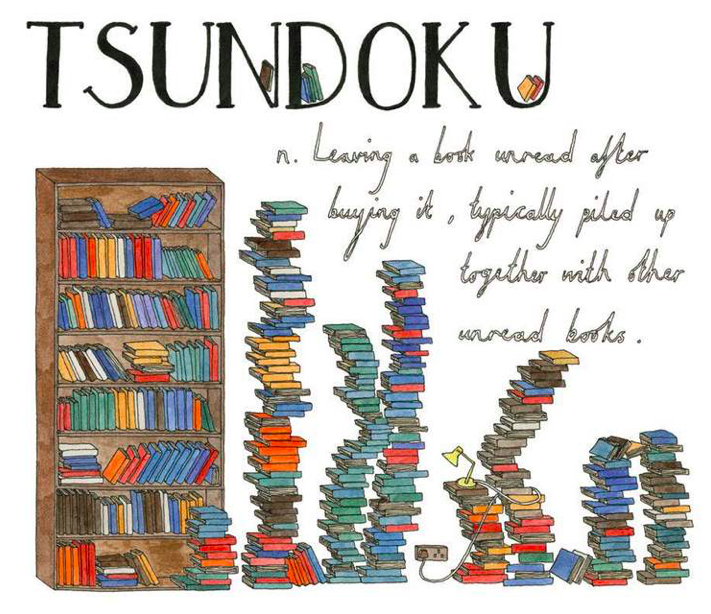
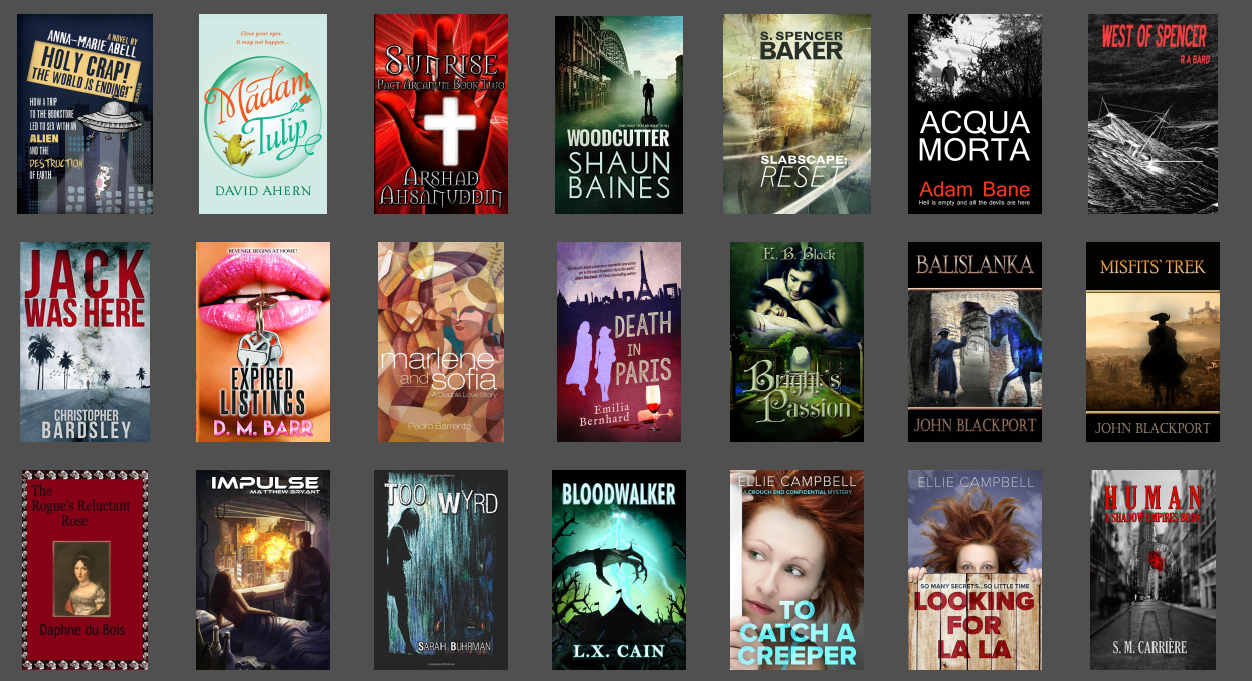
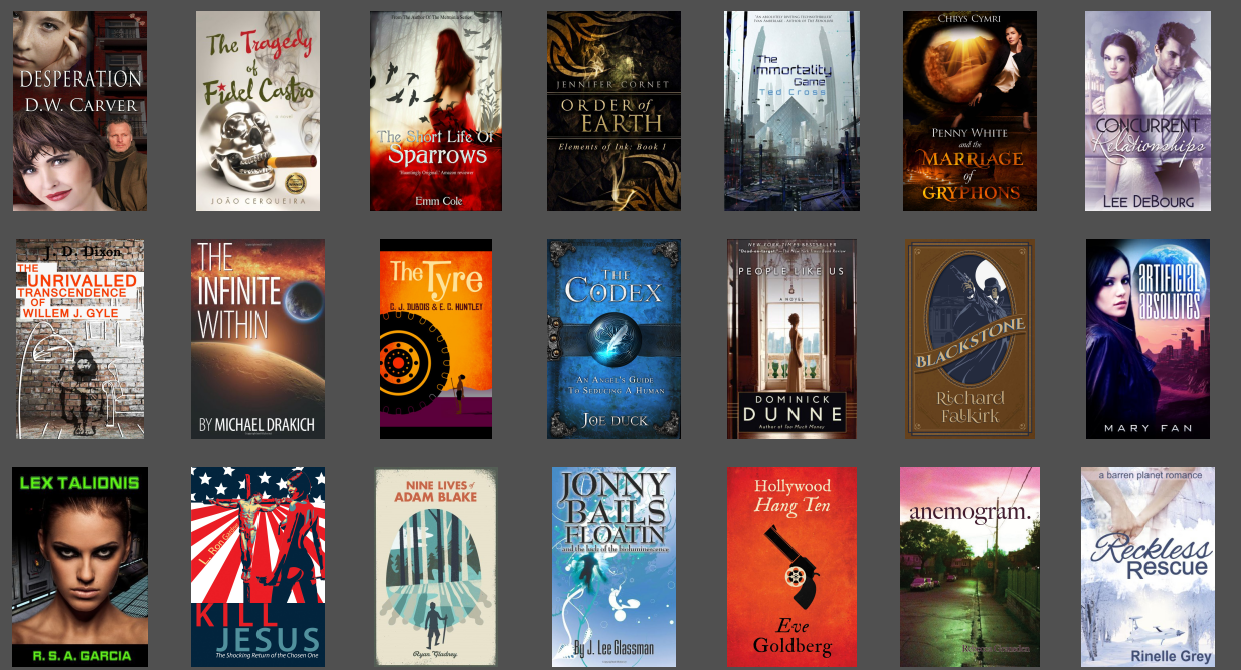
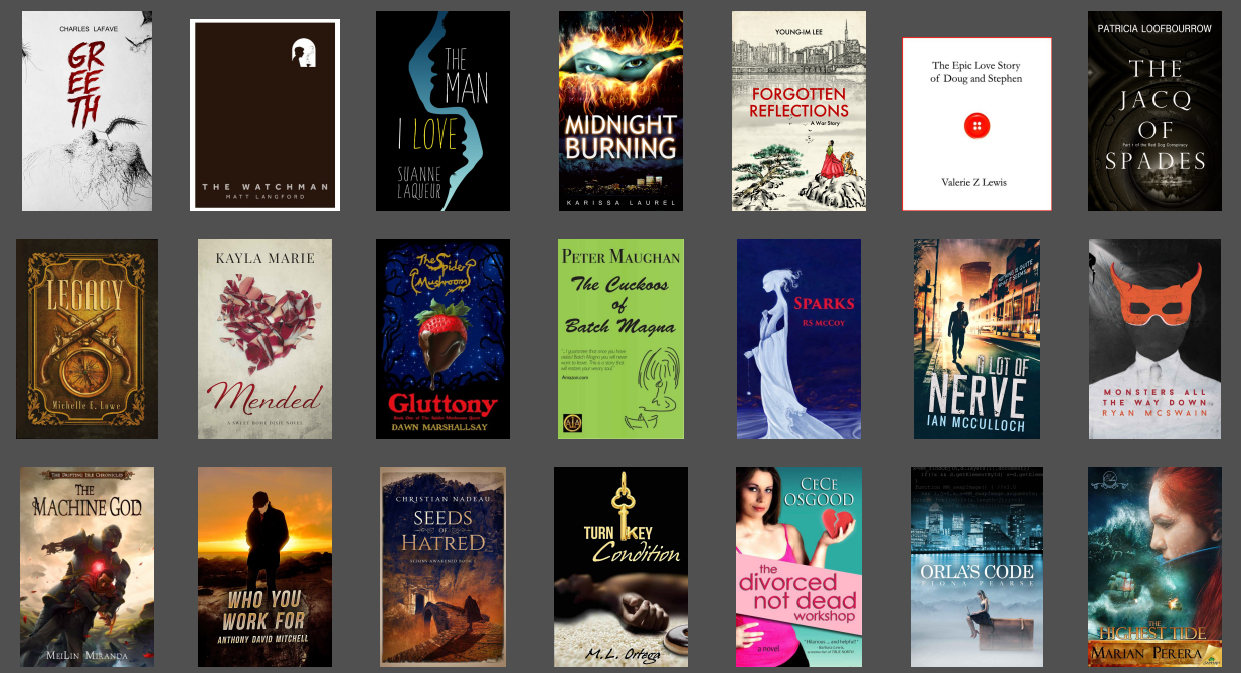
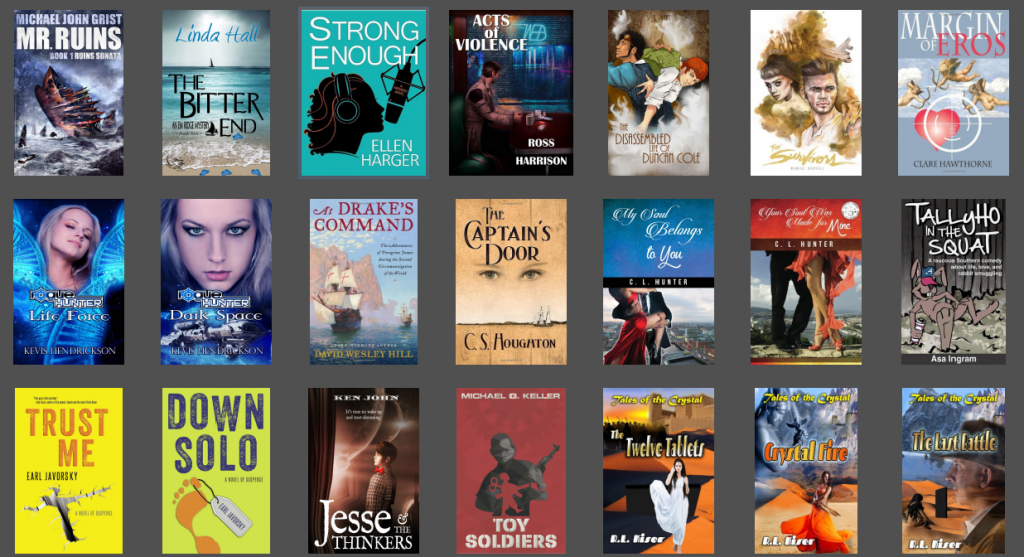
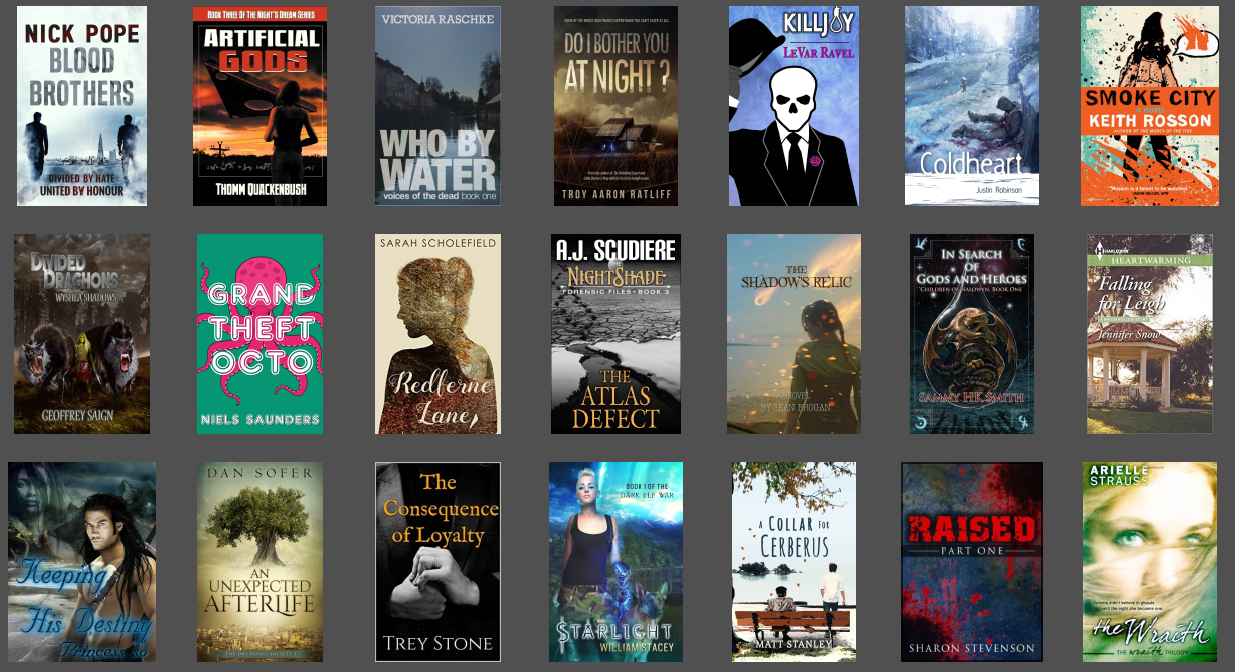
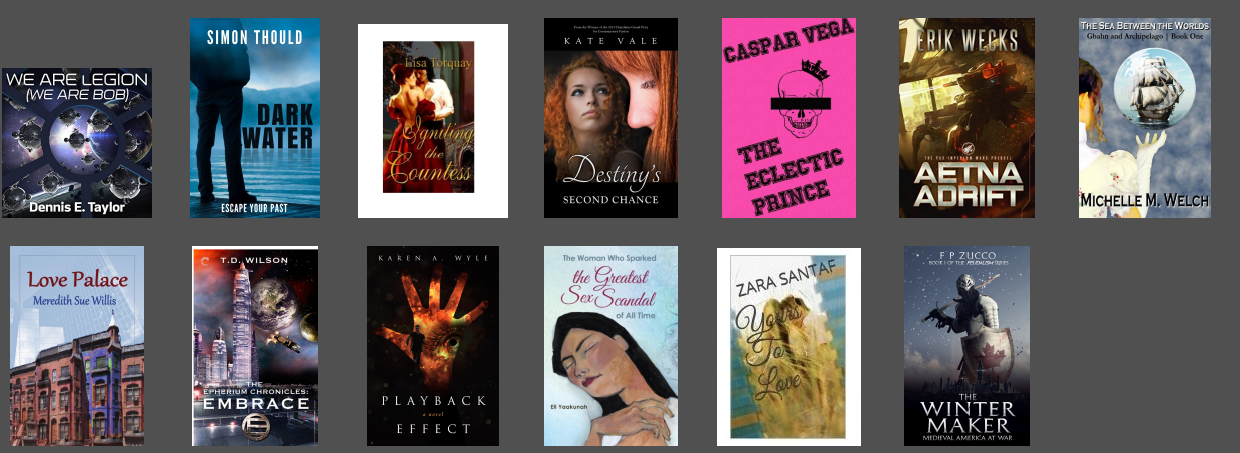
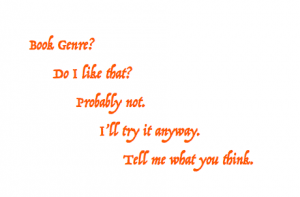




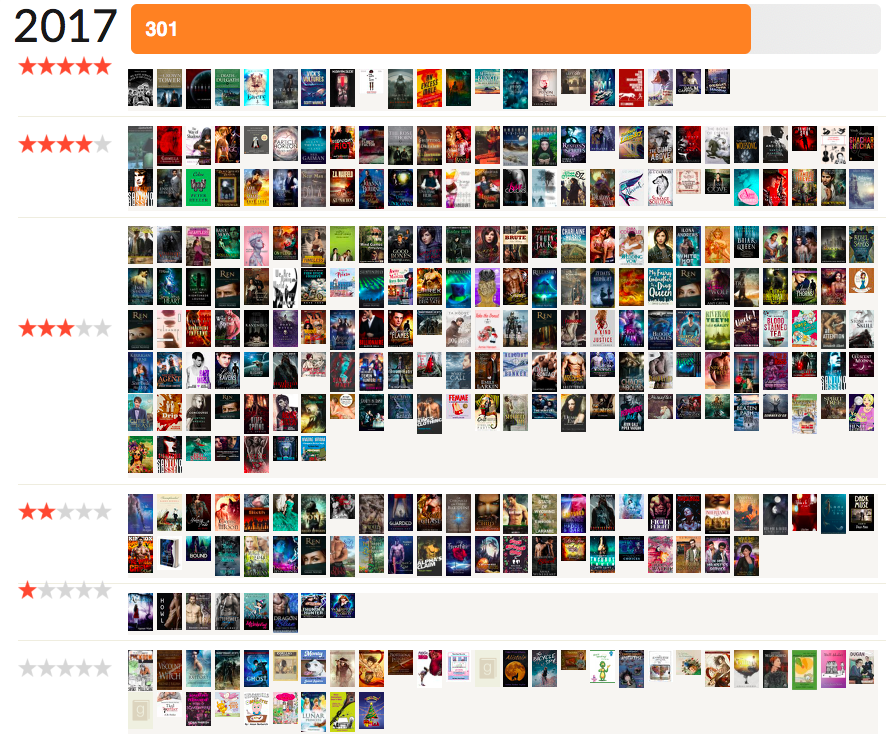

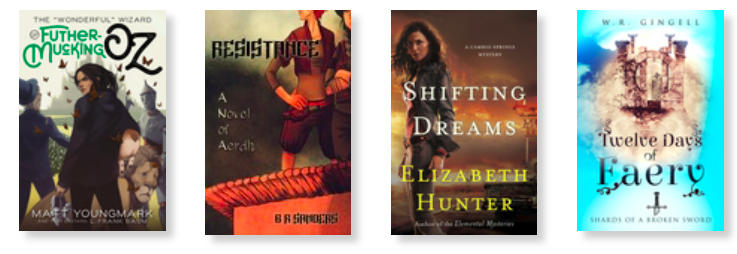
 past. I did an
past. I did an